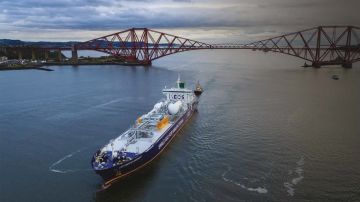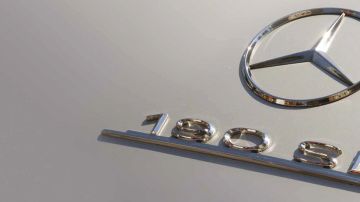Energy-intensive businesses, which rely on fossil fuels to either power its plants or provide them with vital raw materials, cannot afford to treat sustainability as an afterthought. Those that do, risk becoming history. INEOS, which sees sustainability as essential to its long-term success, would rather make history
SUSTAINABILITY is fundamental to how INEOS does business.
More important than that, it drives innovation.
“The chemical industry isn’t always seen as being part of the solution to today’s challenges but ours is a sector that can have enormous influence on what the world does now, on the way it progresses in the future and on how to do this sustainably,” said Greet Van Eetvelde, INEOS’ Head of Energy & Innovation Policy.
With a rising population, a growing pressure to use resources more efficiently, companies like INEOS have to be – and are – at the forefront of creating a society that satisfies today’s generation without compromising the needs of tomorrow’s.
For INEOS, sustainability is not just about safeguarding its licence to operate in towns and cities throughout the world. It believes operating responsibly and reliably is the only way for it to grow.
“For us it is a business decision,” said Kevin McQuade, CEO of INEOS Styrolution. “It is our lever for growth.”
His business recently published its first quantitative GRI G4 report on sustainability, which complies with the standards of the Global Reporting Initiative (GRI), the acknowledged benchmark reporting standard in this field.
“Sustainability has become increasingly important all over the world,” said Petra Inghelbrecht, Global Sustainability Manager at INEOS Styrolution. “Looking for new products and new ways of doing things that overcome the technical challenges of sustainability keeps our business one step ahead.”
INEOS Styrolution is a market leader in styrenics, its business helps to shape what’s happening in the outside world.
“Styrenics are all around us,” said Kevin. “We depend on them to make everyday life more colourful so when we look to the future, we see so many exciting opportunities to work alongside our customers in jointly developing sustainable solutions.”
Styrenics are durable, lightweight, waterresistant, long-lasting and recyclable and can be found in fridges, washing machines, televisions, cars, buildings, toys, sports equipment, packaging and health care products.
As such, the opportunities to make a real difference - and have an impact on society – are huge.
INEOS as a company is a known trendsetter in joining forces with business partners to form industrial clusters. Together with local third parties it often shares resources and utilities and creates industrial symbiosis.
“It goes to the very heart of corporate sustainability,” said Greet.
Like many of INEOS’ businesses, INEOS Styrolution already works hand in hand with many leading institutes and scientists and partners to develop new, innovative solutions.
One such partner is the University of Bayreuth in Germany.
Professor Hans-Werner Schmidt, who works in the university’s Department of Macromolecular Chemistry, said INEOS Styrolution’s approach was different to most corporations.
“It goes well beyond traditional corporate sponsoring of a university chairman or graduate research,” he said. “It is a pioneer in its approach to R&D concepts and partnerships, like ours with INEOS Styrolution, prove it.”
Norbert Niessner, Director of Global R&D and Intellectual Property, said these collaborative efforts and partnerships were vital.
“We see our partnerships as a way to steadily grow our innovation pipeline in both size and value, especially when it comes to creating styrenics solutions that contribute to a sustainable future,” he said.
All these developments, though, are carried out with safety for all – both inside and outside the company – very much in mind.
“Chemical products, such as styrene, can involve risks when not handled properly so safety is rightly at the heart of our business,” said Kevin.
INEOS Styrolution is also proud of the work it is doing to reduce its impact on the environment.
In its report, it highlighted its decision to install a state-of-the-art closed cooling water system at its North American polystyrene production plant in Decatur, Alabama. The system, which meant the same water could be repeatedly used to cool down strands in the strand bath, more than halved the site’s water consumption.
It also championed its decision to install four new heat exchangers at the Texas City styrene monomer plant which saved the equivalent amount of energy needed to power 138,500 cookers.
“The investment resulted in a 55 ton reduction in CO2 per day,” said Tim Brown, Technology Manager Global Styrene Manufacturing.
Industry leaders from more than 100 countries currently rely on INEOS Styrolution’s styrenics products.
“They do business with us because we always strive to offer them the best solution,” said Kevin. “We help them to be more innovative and more efficient than their competitors to manufacture products at a lower cost.”


















